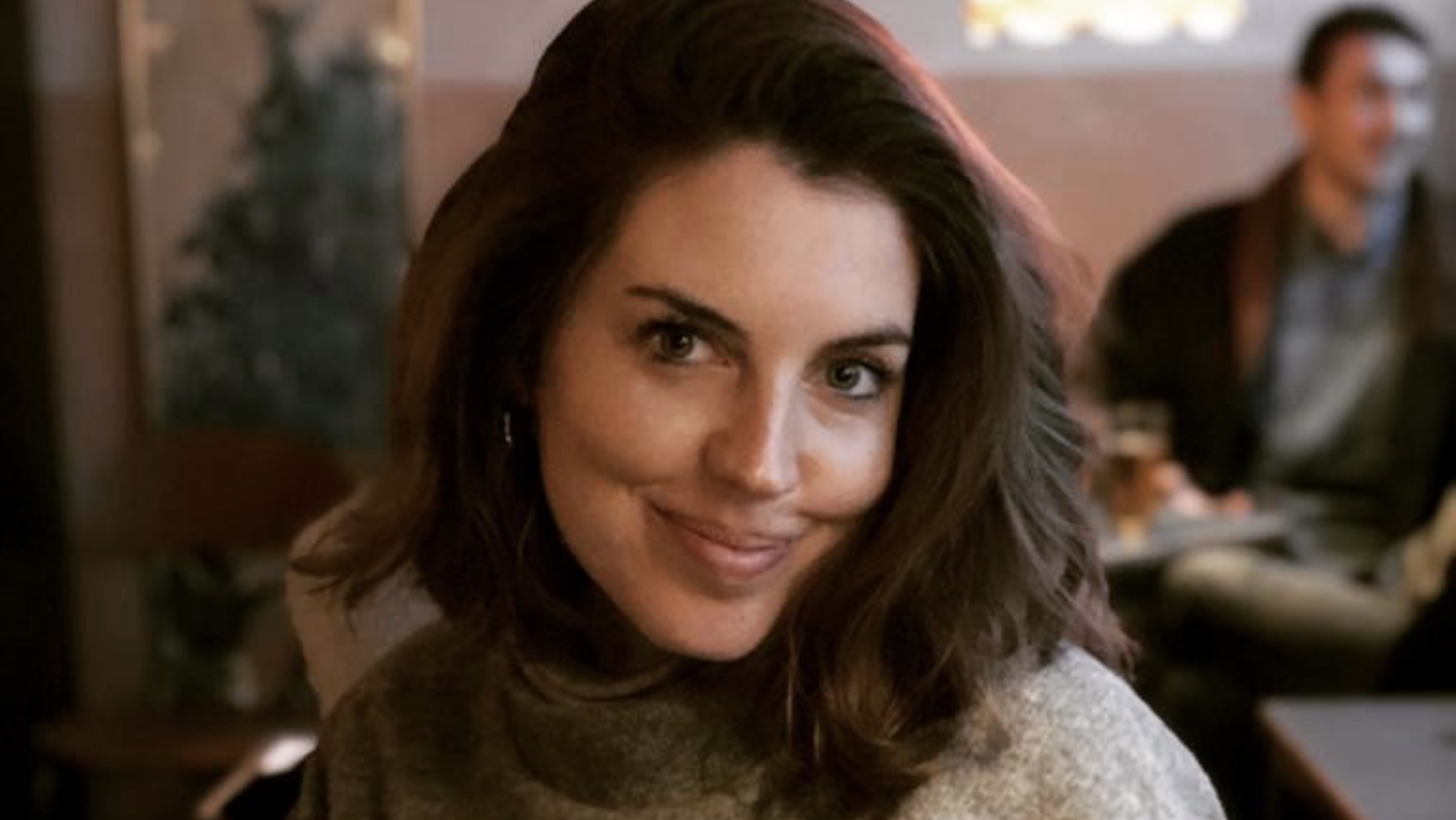
What the Flack? Why PR Professionals are Nurturers with Lucy Allen

Lucy Allen is PR professional and media relations expert with 14+ years of experience across music and brand PR. Lucy has executed highly effective PR campaigns for leading international festivals, high-profile global music artists and influential brands. In addition to single-handedly launching her own PR agency Leap Publicity, Lucy is experienced in crisis management and has overseen all media comms at large scale events including Winter Wonderland, Parklife Festival and South West Four Festival. Lucy currently works as PR and comms lead at social media agency Coolr.
LBB> Tell us about your current role and what you do?
Lucy> I’m PR and comms lead at London-based social media and influencer marketing agency Coolr. Essentially, my role is to get eyes on the business whether that is through press coverage, award wins, events or via strategic use of our own social channels and website. I work closely with the senior leaders, the CEO and the commercial director as my role helps drive new business and ensures we’re constantly growing our profile in a positive way both online and in the press.
LBB> And how did you get to where you are today?
Lucy> I started my career in the music industry as I was music obsessed growing up and wanted to work with artists after university. After cutting my teeth at Shoreditch based music PR firm Anorak assisting on artist PR campaigns for the likes of Foals and Metronomy, I moved to dance music agency Listen Up promotions for four years where I headed up a team of six and worked on UK and international festival and venue clients including Parklife in Manchester, Circoloco in Ibiza and Blue Marlin in UAE. I came back to artist press and launched my own agency Leap Publicity four years ago where I worked with talent including Eve, Tiffany Calver, Hak Baker, and Eliza. After a few years working for myself I came back into agency life where I became Lifestyle PR division lead at W communications overseeing accounts including Winter Wonderland, Fender and Spotify before my love of social media brought me in-house at Coolr last April.
LBB> What does your average day look like?
Lucy> I like to start the day reading the headlines in the press- both national and trade to know what is happening both in the world but also in the marketing industry. I also make sure I check all social platforms daily so I’m aware of trends and anything we can tap into it from a Coolr perspective. Social media moves fast so staying on top of viral moments and exciting campaign work in the business is vital. My role is very collaborative, whether I’m crafting an award entry or a press release, I need to liaise with the wider agency to ensure anything I’m working on on behalf of the agency is as accurate as possible. I oversee our own social channels (TikTok, LinkedIn, Instagram) and manage a team to ensure we’re constantly making content that is showcasing the agency in the best light. I run our monthly event series Coolr Sessions so am usually prepping for that whether it’s locking in speakers, creating themes and topics or writing briefing questions.
LBB> For your organisation, what is the key function of PR and comms? Is it about company culture? Attracting clients? Empowering talent? Something else?
Lucy> I’d say it’s a mix of all of the above. For any business, commercials are a huge priority but without attracting top talent and doing great work winning impressive new clients is not going to be possible. I’d say my role is about pulling out all of the best things about Coolr, strategising them into a comms plan and presenting them either via our owned social channels and website or through strategic comms. If we’re launching a new division, have made an exciting new hire or won a new client, anything comms related is driven by me so staying on top of everything happening in the business is key.
LBB> PR has always been about finding the story / finding the angle. What is your process for staying ahead of the content curve and serving up something fresh and engaging?
Lucy> Regardless of whether I’m pitching to consumer press or trade press, actually reading the press is really important to set me up for success. Journalists and editors respect when you tailor your pitch appropriately and show clear knowledge of the platform or publication they write for. Impressive results are great but it’s the storytelling aspect of a pitch that stands out. I always try and pull in something that relates to the real world and is not just specific to social media when crafting a pitch to press or an award entry. Why and how is this creating impacting outside of social media? That’s how I try and approach it.
LBB> Historically Advertising folk have a very different relationship with the media, especially the press, than PR folk. Advertising is about buying ad space and being able to dictate how and where something is presented - that’s a degree of control you can barely dream of in PR. Does that tension still exist, and if so how do you navigate that tension?
Lucy> Earned editorial is very powerful and always will be. To have a journalist cover news I’ve pitched in, purely based on them being interested in it, is the most satisfying part of the job. Advertising of course has its place but when people confuse them and think editorial support can be controlled, it can be tricky to navigate. Some of best and most impactful pieces of press coverage I’ve secured have come after years of chipping away. Strategy (and patience) is key when it comes to PR!
LBB> And what other common misconception do you advertising people have about comms and PR?
Lucy> I think sometimes people perceive PR professionals as people that aren’t good enough writers to be journalists. In truth, we’re behind the scenes people and happy to stay that way. PR professionals are nurturers, we mould stories and are always trying to think of angles that could work. Being a PR professional has made me never take anything as face value and always try to dig deeper. I analyse everything and see myself as a detective in my next life! We’re also incredibly scrappy and are used to the pressure of having to deliver results.
LBB> To what extent do you feel 'the work speaks for itself'? To what stage of growth can a business rely on this mantra to gain more clients?
Lucy> I think fundamentally the work is the most important cog in the machine when it comes to an agency thriving. Excellent work is vital when building a strong rep in the industry. You can’t put a price on a reputation built on best-in-class work!
LBB> When it comes to getting coverage for a creative campaign in the consumer press, how should creative teams go about working with their agency’s comms and PR experts?
Lucy> Creative teams should try and keep agency comms teams in the loop with relevant campaigns from the get go. Lead times in press can be long and having the ability to be strategic is always beneficial to PR. I also think PR people benefit from knowing a campaign inside out, as they have to communicate it to media. The more in the loop they are the better I say!
LBB> When a business is faced with very bad news, what’s the key to getting through it?
Lucy> Luckily I’ve not had to experience this much in my career to date but I’d suggest transparency is key. The Industry talks and people respect leaders who share bad news direct rather than leaving it to come out elsewhere. Clear and honest communication at work (and life!) is always good practice.
LBB> Generally speaking, how do you approach the hack/flack relationship?
Lucy> This saying isn’t really used in PR so much these days but my take on it is that journalists are extremely busy people who are absolutely inundated with emails and pitches- acknowledging this is key to a successful relationship with them. Keeping emails concise and to the point is key. If you can’t summarise a pitch in one sentence then it’s not ready to be pitched in! I try and imagine myself in the role of a busy editor and if I don’t feel like my pitch is going to create impact, I don’t send it. I’m also such a sucker for brilliant writing and envy a journalist’s ability to create something from an editorial standpoint. PRs feed stories to journalists but it’s the collaborative aspect that gets things over the line.
LBB> How does doing comms for the advertising world differ from any other industry you’ve worked in?
Lucy> Social media is unique because it differs from traditional advertising. Writing about social media campaigns can also be difficult to articulate as most content is in video format. If I’m writing about a TikTok campaign or something that is video content, a pitch needs to drive a journalist to actually watch the content. Capturing attention is key. In general I find trade press more responsive than consumer press because the scope of what can be written is more targeted.
LBB> What are the most useful tools in the arsenal of a comms professional working in advertising industries right now?
Lucy> Twitter (X) + Linked In are essential for PR people. It allows you to see what journalists are talking about and what they’re unique passion points are. Having subscriptions at all key trade publications is key to knowledge of regular formats and features. Chat GPT can help craft the bones of a press release or give pitch pointers but I would not suggest leaning on this too heavily as human touch goes a long way and a lot of what is churned out by Chat GPT sounds the same. Also as I work specifically in social media, understanding the uniqueness of each social platform is key to success too. I work with 100 social media savvy people so not being afraid to ask questions is key!
LBB> In your opinion, how has the role of a Comms professional evolved during your career span ? Have things changed greatly or do core tasks / principles remain the same?
Lucy> When I worked in the entertainment sector seeing magazines shut down or stop running in print was a concern as I wondered if a role in PR would remain possible. But adapting into more of a trade focused role has opened up my skill set and allowed me to focus on strategy around owned channels rather than just solely focusing on earned press. A journalist’s thirst for a unique angle and perspective remains the same though and finding a way to stand out is still critical to PR success. I also used to have to call journalists to pitch in stories. This is relatively unheard of now!
LBB> What frustrates you about the way the media and PR have changed over the years?
Lucy> Publications don’t have the budgets to pay for as many staff or writers so sometimes pitches and emails go unread. This can be a little disheartening when you’ve spent a while on a press release or pitch. Also when in the entertainment / music space the market was SO saturated with PRs and comms people it felt almost unworkable at times.
LBB> And what excites you?
Lucy> It’s exciting thinking about what could be next, will we see another editorial focused social media platform? Or will people want to consume print magazines again? I know that words will always hold huge power and influence in the marketing space and I’m excited to see where this will land next!










